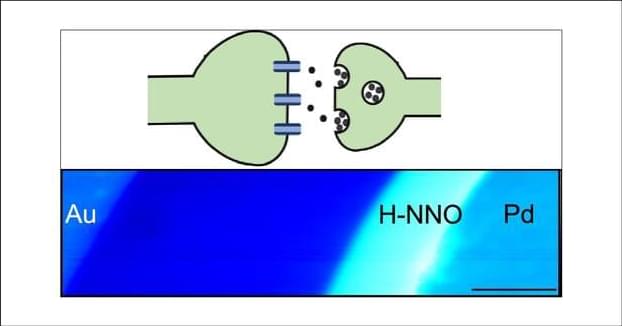A key aspect of how the brain learns and enables decision-making processes is through synaptic interactions. Electrical transmission and communication in a network of synapses are modulated by extracellular fields generated by ionic chemical gradients. Emulating such spatial interactions in synthetic networks can be of potential use for neuromorphic learning and the hardware implementation of artificial intelligence. Here, we demonstrate that in a network of hydrogen-doped perovskite nickelate devices, electric bias across a single junction can tune the coupling strength between the neighboring cells. Electrical transport measurements and spatially resolved diffraction and nanoprobe X-ray and scanning microwave impedance spectroscopic studies suggest that graded proton distribution in the inhomogeneous medium of hydrogen-doped nickelate film enables this behavior.
